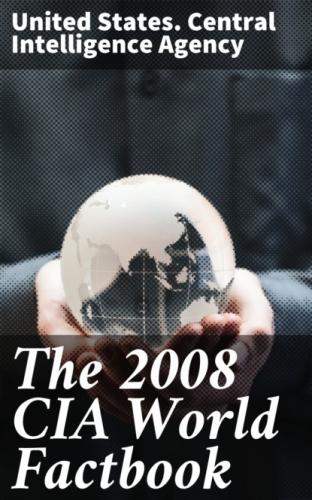Costa Rican colon (CRC)
Currency code:
CRC
Exchange rates:
Costa Rican colones (CRC) per US dollar - 519.53 (2007), 511.3 (2006), 477.79 (2005), 437.91 (2004), 398.66 (2003)
Communications
Costa Rica
Telephones - main lines in use:
1.437 million (2007)
Telephones - mobile cellular:
1.503 million (2007)
Telephone system:
general assessment: good domestic telephone service in terms of breadth of coverage; restricted cellular telephone service; state-run monopoly provider is struggling with the demand for new lines, resulting in long waiting times domestic: point-to-point and point-to-multi-point microwave, fiber-optic, and coaxial cable link rural areas; Internet service is available international: country code - 506; landing point for the Americas Region Caribbean Ring System (ARCOS-1) fiber-optic telecommunications submarine cable and the MAYA-1 submarine cable that provide links to South and Central America, parts of the Caribbean, and the US; connected to Central American Microwave System; satellite earth stations - 2 Intelsat (Atlantic Ocean) (2007)
Radio broadcast stations:
AM 65, FM 51, shortwave 19 (2002)
Radios:
980,000 (1997)
Television broadcast stations:
20 (plus 43 repeaters) (2002)
Televisions:
525,000 (1997)
Internet country code:
.cr
Internet hosts:
16,440 (2008)
Internet Service Providers (ISPs):
3 (of which only one is legal) (2000)
Internet users:
1.5 million (2007)
Transportation
Costa Rica
Airports:
151 (2007)
Airports - with paved runways:
total: 36 2,438 to 3,047 m: 2 1,524 to 2,437 m: 2 914 to 1,523 m: 21 under 914 m: 11 (2007)
Airports - with unpaved runways:
total: 115 914 to 1,523 m: 19 under 914 m: 96 (2007)
Pipelines:
refined products 242 km (2007)
Railways:
total: 278 km narrow gauge: 278 km 1.067-m gauge note: none of the railway network is in use (2007)
Roadways:
total: 35,330 km paved: 8,621 km unpaved: 26,709 km (2004)
Waterways:
730 km (seasonally navigable by small craft) (2007)
Merchant marine:
total: 1 by type: passenger/cargo 1 (2008)
Ports and terminals:
Caldera, Puerto Limon
Military
Costa Rica
Military branches:
no regular military forces; Ministry of Public Security, Government, and Police (2008)
Manpower available for military service:
males age 16–49: 1,134,205 females age 16–49: 1,095,763 (2008 est.)
Manpower fit for military service:
males age 16–49: 958,013 females age 16–49: 925,727 (2008 est.)
Manpower reaching militarily significant age annually:
male: 40,767 female: 38,899 (2008 est.)
Military expenditures:
0.4% of GDP (2006)
Transnational Issues
Costa Rica
Disputes - international:
the ICJ has given Costa Rica until January 2008 to reply and Nicaragua until July 2008 to rejoin before rendering its decision on the navigation, security, and commercial rights of Costa Rican vessels on the Río San Juan over which Nicaragua retains sovereignty
Refugees and internally displaced persons:
refugees (country of origin): 9,699–11,500 (Colombia) (2007)
Trafficking in persons:
current situation: Costa Rica is a source, transit, and destination country for men, women, and children trafficked for the purposes of commercial sexual exploitation and forced labor; women and girls from neighboring states, Russia, Uzbekistan, and the Philippines are trafficked into the country for sexual exploitation; Costa Rica also serves as a transit point for victims trafficked to North America and Europe; the government identifies child sex tourism as a serious problem; men, women, and children are also trafficked within the country for forced labor in fishing and construction, and as domestic servants tier rating: Tier 2 Watch List - Costa Rica is on the Tier 2 Watch List for its failure to provide evidence of increasing efforts to combat human trafficking, particularly in terms of its failure to improve its inadequate assistance to victims; while Costa Rican officials recognize human trafficking as a serious problem, the lack of a stronger response by the government is of concern (2008)
Illicit drugs:
transshipment country for cocaine and heroin from South America; illicit production of cannabis in remote areas; domestic cocaine consumption, particularly crack cocaine, is rising; significant consumption of amphetamines
This page was last updated on 18 December, 2008
======================================================================
@Cote d'Ivoire
Introduction
Cote d'Ivoire
Background:
Close ties to France since independence in 1960, the development of cocoa production for export, and foreign investment made Cote d'Ivoire one of the most prosperous of the West African states, but did not protect it from political turmoil. In December 1999, a military coup - the first ever in Cote d'Ivoire's history - overthrew the government. Junta leader Robert GUEI blatantly rigged elections held in late 2000 and declared himself the winner. Popular protest forced him to step aside and brought Laurent GBAGBO into power. Ivorian dissidents and disaffected members of the military launched a failed coup attempt in September 2002. Rebel forces claimed the northern half of the country, and in January 2003 were granted ministerial positions in a unity government under the auspices of the Linas-Marcoussis Peace Accord. President GBAGBO and rebel forces resumed implementation of the peace accord in December 2003 after a three-month stalemate, but issues that sparked the civil war, such as land reform and grounds for citizenship, remained unresolved. In March 2007 President GBAGBO and former New Force rebel leader Guillaume SORO signed the Ouagadougou Political Agreement. As a result of the agreement, SORO joined GBAGBO's government as Prime Minister and the two agreed to reunite the country by dismantling the zone of confidence separating North from South, integrate rebel forces into the national armed forces, and hold elections. Several thousand French and UN troops remain in Cote d'Ivoire to help the parties implement their commitments and to support the peace process.
Geography
Cote
